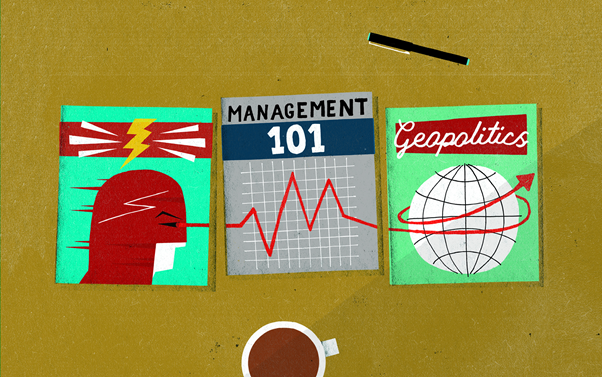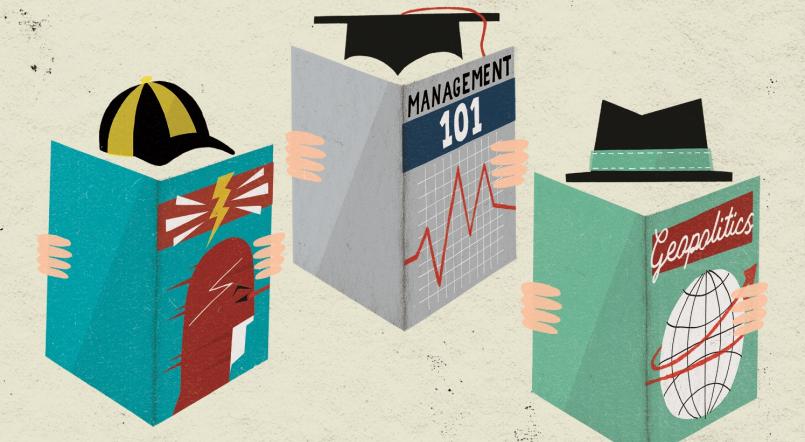About 50 years ago, Former US President, John F Kennedy argued, “Leadership and learning are indispensable to each other”.
This has become ever more true over the last few years, during which we have entered a world that is described by industry leaders and academics alike as volatile, uncertain, complex and ambiguous (VUCA). This VUCA world is characterised by an ever-increasing rate of change and knowledge creation, and as a result presents leaders with challenges for which they have not been prepared.
Carlos Ghosn, Chairman and CEO of Nissan, Renault and the Renault-Nissan Alliance, recently gave an excellent example of this. Asked if he could do today what he did at Nissan in 1999 and 2000, he explained that yes he could and would, but that he “would need much more emotional stability and certainty. Leaders of tomorrow are going to have to be incredibly secure and sure of themselves”.
But, he added, “Leaders of the future will also need to have a lot more empathy and sensitivity – not just for people from their own countries, but also for people from different countries and cultures. It is a paradox: on the one hand, you have to be more confident and secure, but on the other, you have to be a lot more open and empathetic. Usually, these are not attributes you find in the same person.”

While learning, stay connected to your interests, be they superhero comics or geopolitics.
The difference between knowing and doing
Hence leaders must continue to learn throughout their career. This means continually acquiring new knowledge in various areas, which is challenging enough in an age that over-exposes leaders to a constant flow of input that typically exceeds their acquisition and retention capabilities. But knowing the new remains the easier aspect of learning. The really difficult part is the doing.
Unfortunately, leaders impact the world more through what they do than through what they know. With regards to Ghosn’s point above, most senior executives will easily understand and relate to the need to combine self-confidence with high global empathy. But few will be able to do it. The overwhelming majority of managers not born or raised to have this ability will have to acquire it over the course of their career.
‘Doing’ – not mission impossible
After spending an illustrious career studying and educating leaders, American scholar and author Warren Bennis concluded, “Major capacities and competencies of leadership can be learnt, and we are all educable, at least if the basic desire to learn is there… nurture is far more important than nature in determining a successful leader.”
Unfortunately, research and everything we know about our own lives make it clear that implementing the learning is quite a challenging task.
Four key obstacles today’s leaders face include:
1. The curse of knowing more (or thinking that you do!)
Today’s executives know a lot more about management and leadership than their predecessors. But this knowledge is not always an asset, as it often leads managers to over-estimate how effective they are. Moreover, management concepts tend to be much simpler to understand than they are to implement. Executives hence often do not grasp the knowing-doing gap until they try out the concept in real life under time and performance pressures.
2. The trap of habits
Learning a new skill can take months, if not years. It requires considerable energy, especially when the new behaviour runs counter to deeply ingrained habits. Coupled with insufficient effort to remember the new knowledge well enough, and insufficient persistence in devoting enough attention to substitute existing habits with new behaviours, many executives find themselves trapped in the status quo.
3. The catch-22 of competing competencies
Sometimes while committed to new behaviours, the executive is also committed to another behaviour, which happens to be hard to produce simultaneously. For instance, the tension between empowering subordinates and ensuring smooth flow of work or becoming more assertive and maintaining harmonious relationships.
4. The failure of the social system
Executives may have decided to modify their behaviours, but their success often requires cooperation and support from the people with whom they interact, some of whom may be unwilling and/or unable to offer support.
Helpful practices to improve your odds
The above obstacles can be overcome through a few enabling conditions, as per below:
1. Focus on one development objective at a time
Most of us have limited amounts of time and finite capability for self-control. Instead of spreading time and energy across several (possibly competing) competencies, select one that is of significant importance and where improving on it will deliver a very high return on investment. It is perhaps best not to start with the most difficult challenge. In fact, start with a behaviour that will yield good benefits but is not too difficult to implement and maintain. This will allow momentum to build.
Invest some time and energy to visualise what the desired behaviour would look like and to understand why you currently behave the way you do. This will help identify enabling conditions that you may want to put in place. Also, try to maintain some flexibility in your schedule. Packed agendas lead to fatigue and a greater difficulty to self-control, so give yourself a few breaks during the day to allow yourself to reconnect with your goal.
2. Set aside and protect reflection time every day
It is difficult enough to come up with the right implementation of a new skill under calm and slow conditions, and even tougher to do so in real time and under pressure. It is hence very helpful to think ahead of future situations, which allows one to envisage several scenarios and consider several responses, and to reflect on past ones to analyse what one did well and not, and why. For instance, Mahatma Gandhi systematically made time throughout his life to review his day’s actions. His secretary, Pyarelal, reported that well into his seventies, Gandhi daily “held a silent court with himself and called himself to account for his acts. Nothing escaped his scrutiny. He gave himself no quarter”.
But do not merely develop reflectiveness. Most of us dwell too much on the past or excessively anticipate the future. As a result, we are not very often completely here and now. Yet to intercept habitual response and to craft a more productive response one needs to be present and mindful. Developing one’s ability to regroup here and now is hence an essential enabler for implementation of new knowledge and the development of a new capability.
A simple way to regain mindfulness is to practice conscious breathing. Taking 10 to 15 deep and conscious breaths should help one regain a measure of calmness.
3. Enlist the support of your social system
Executives changing some aspects of their behaviour will have an impact on the people they interact with. Take, for example, an executive who decides to make a big effort to empower his subordinates. In principle, the subordinates will largely welcome this intention. In practice, however, a greater degree of empowerment will require some of them to ramp up their own degree of engagement and effort, and maybe also their capabilities and performance. At best, it will take time. At worst, they may resist having to do so and the executive will have to manage the change process s/he is proposing to his/her subordinates.
Hence, executives have to allocate some time and attention to help key individuals accept the changes and to become willing and able to (learn to behave differently so they can) support them. Start with the one person whose support can impact your development most. Executives who under-invest in this area are condemning themselves to row against the current.
4. Keep at it
Implementing new leadership knowledge and developing a new skill is unlikely to be an easy process. It is more likely to be frustrating at times, and executives will sometimes wonder if this can be done at all.
When you start doubting, remember one of history’s greatest inventors, Thomas Edison, failed many more times than he succeeded. When people pointed out to him that another experiment had just failed, he apparently responded, “No, I have not failed. I have just found another way that doesn't work.” And, he added, "I am not discouraged, because every wrong attempt discarded is another step forward".
In conclusion, as Chinese philosopher Confucius said, “Our greatest glory is not in never falling, but in rising every time we fall”.
This article was first published in HQ Asia (Print) Issue 05 (2013).


